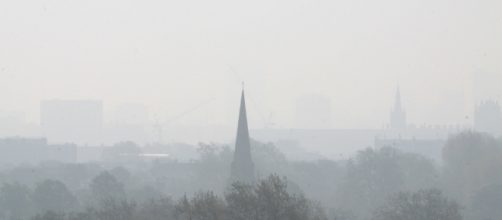Air pollution in England has been a looming problem for some time, but the level of Air Pollution that currently exists in England today has reached a level that is considered “illegal” by leading environmental authorities, and it has been that way since 2010. Debate continues to rage on regarding what can be done to improve the air quality of the country, but in order to put any effective measures into place, a battle must be won against a government that seems rather lackadaisical about the issue.
Mayor Sadiq Khan proposes solutions for London
The legal battles that the government finds itself embroiled in haven’t stopped the English from trying to find solutions to the issue of their own volition.
Mayor of London Sadiq Khan has established some programs such as a cleaner bus route initiative, dubbed a “low emission bus zone” according to an official announcement in a mayoral press release. The initiative seeks to replace buses that emit an excessive amount of pollutants into the air with buses that run on a less damaging and cleaner fuel system.
Putney High Street and its surrounding areas are notorious for their poor air quality, and the first new buses were unveiled for use in those areas motivated by a sense of urgency. The urgency is backed by a statement from the mayor dated March of 2017, calling on the government to get serious about air pollution: “I can’t do this alone.
That’s why I am repeating my call to the Government to take their responsibility seriously and introduce a national diesel scrappage fund to help get the most polluting vehicles off our roads and to give me the powers to tackle other sources of air pollution.”
The harmful effects of Nitrogen Dioxide
Perhaps the pivotal concern regarding air quality in England is that of high levels of Nitrogen Dioxide (NO2) in the air of the country. NO2 is a gas that is released into the air via the burning of fuels, such as those that power buses, trucks, and cars. A high amount of Nitrogen Dioxide in the air provokes the respiratory system to react negatively to it. The difficulty with breathing, coughing, and wheezing can occur even when exposed to NO2 for a short amount of time.
Long-term effects may include that coughing and wheezing developing into asthma, or hospital stays in which the patient receives breathing treatment. Respiratory infections may also aggravate by breathing in large amounts of NO2. Children and the elderly are more likely to succumb to the negative effects of Nitrogen Dioxide, making the issue of air quality in England one of protecting the country’s most vulnerable citizens.
A fight drags on over the future of the nation, led by ClientEarth
However, even with the pleading for governmental action from the Mayor Of London dated back nearly a year, the English government has still not come to a suitable solution to the problem of air pollution in the country, say environmental experts.
ClientEarth, a nonprofit charity organization dedicated to reigning the UK government in regarding the levels of Nitrogen Dioxide in the air, went to court for the third time on January 25, 2018. In the past, the organization has been successful in their past endeavors to advocate for improving the air quality of the country. This time, they haven’t minced words regarding their opinion of the recently proposed government plan for reducing the levels of NO2 in the air in 2018.
According to a recent report by Air Quality News, ClientEarth has stated that this plan “falls far short of what is needed to bring air pollution to within legal limits as soon as possible”, and seeks to find a more suitable solution to the problem of roadside concentrations of NO2 before the governmental plan kicks in in July of this year.
This proposed course of action that is set to start in July calls for identifying 20 local areas in which NO2 levels surpass the legal limit, and puts the initiative of reducing these NO2 levels in the hands of the authorities of these areas.
ClientEarth doesn’t find the course of action appropriate, as the government had previously put forth a framework for five cities to be dubbed ‘clean air zones,’ and the charity refuses to settle for less. The environmental advocates have gone so far as to call the proposed governmental plan “unlawful” due to its perceived inadequacy. A court battle between ClientEarth and the English government stretches on, hearing after hearing, as the two groups continue to clash. The future of the air quality of England hangs in the balance.


